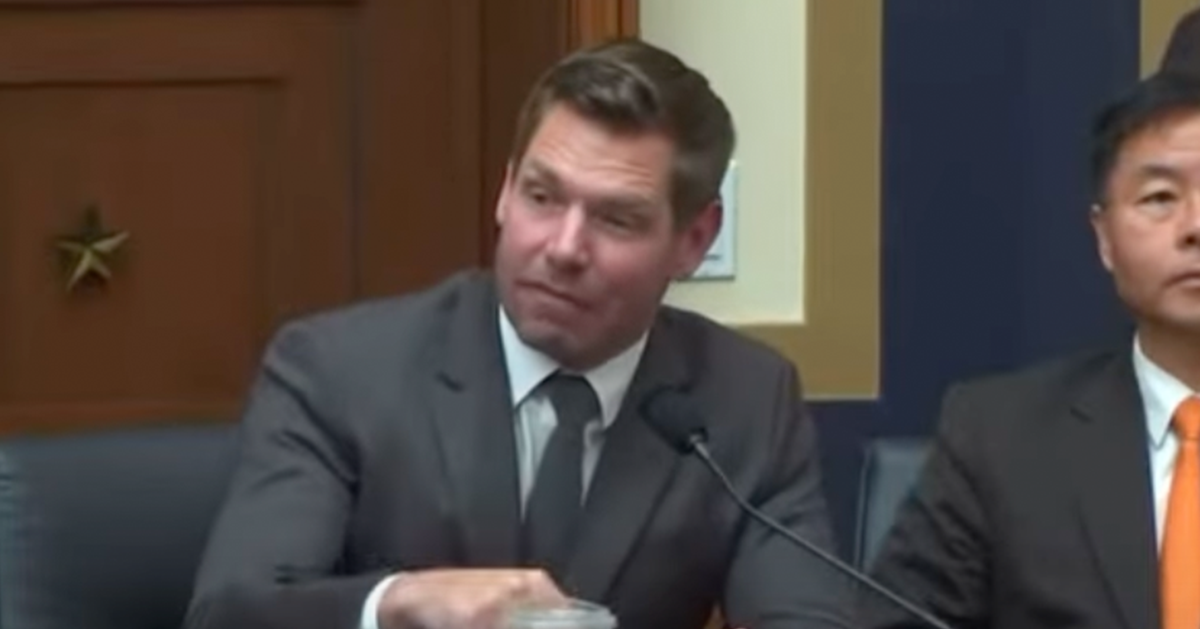DHS Accused of Ignoring Migrant DNA Collection Law
In a startling revelation, whistleblowers have accused the Department of Homeland Security (DHS) under the Biden-Harris administration of failing to adhere to federal laws requiring DNA collection from migrants apprehended at the U.S.-Mexico border.
The DNA Fingerprint Act of 2005 is reportedly not being followed by the Biden-Harris administration when it comes to migrants, potentially allowing criminal activity by repeat offenders who are permitted to disappear into the country, as Breitbart reports.
The statute at issue mandates that U.S. federal agencies collect DNA samples from individuals arrested, charged, or convicted of crimes. This requirement also extends to foreign nationals in federal detention.
Despite this law's existence, adherence to its requirements under both the current administration and its predecessors has come into question.
During the Trump administration, a rule was implemented in 2020 to enforce the DNA Fingerprint Act. Despite the rule, DHS's compliance has reportedly been lacking, starting during the Obama administration and continuing thereafter. These deviations in policy are claimed to have persisted into the current administration, despite the legal requirements.
Allegations of Minimal DNA Collection Rates
Reports indicate that the number of migrants from whom the DHS collected DNA has remained alarmingly low. According to data, the percentage of DNA samples collected from migrants encountered by Customs and Border Protection (CBP) and the Office of Field Operations (OFO) stood at just 16% in Fiscal Year 2021.
This number slightly improved to 37% in Fiscal Year 2022 and stayed around 36% in the first three-quarters of Fiscal Year 2023.
Furthermore, recent visits to processing centers such as Tucson, Casa Grande, Yuma, and San Diego revealed an absence of DNA collection efforts. This lack of action has raised significant concerns about the operational priorities at these border processing sites and their adherence to federal mandates.
Whistleblowers claim that the alleged policy failures have exacerbated issues at the border. Over the past three and a half years, more than 10 million individuals who crossed the border illegally were encountered, in addition to around 2 million who evaded apprehension altogether.
Case of Repeat Offender Raises Concerns
A specific case has highlighted the potential consequences of non-compliance. Victor Antonio Martinez-Hernandez, a Salvadoran gang member, allegedly committed various crimes, including murder and rape, after repeatedly crossing the U.S. border without his DNA being collected by DHS.
Despite being apprehended and deported three times previously, Martinez-Hernandez crossed the border a fourth time and continued his criminal activities in Los Angeles.
DNA collected from a crime scene in Los Angeles linked him to the offenses, prompting questions about whether previous DNA collection could have prevented further crimes.
If Martinez-Hernandez's DNA had been entered into a database like CODIS during prior encounters with DHS, it may have led to his prompt apprehension after subsequent illegal entries.
According to the Republican letter, the situation represents a "definite potential" to have apprehended Martinez-Hernandez sooner and prevented further criminal acts upon discovering his past actions.
Whistleblowers Face Reprisals
The whistleblowers bringing these allegations forward have reportedly encountered retaliation. They claim to have experienced punitive actions such as loss of retirement benefits and threats from within the current administration. These allegations have added an additional layer of complexity to the ongoing debate over border policy and law enforcement practices.
The whistleblowers assert that comments allegedly made by a DHS official referenced extreme measures intended to suppress their dissent. The referenced language suggested a range of coercive actions, underscoring the serious nature of their claims.
Moving forward, these allegations and the responses to them may shape both public perception and the legislative agenda concerning U.S. border security and federal law compliance.
The situation underscores the tension between administrative practices and statutory obligations, with significant implications for national security and human rights at the forefront.





